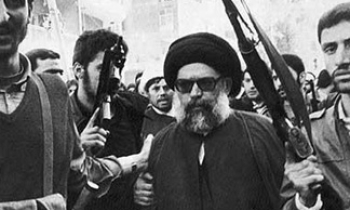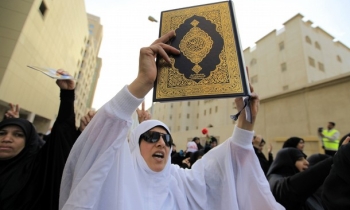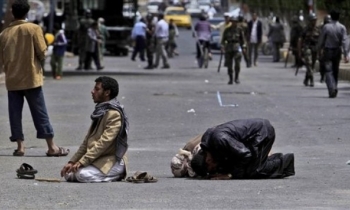The South Asia Press Commission (SAPC) has described the Maldives as a “journalists’ prison” in its 2006 annual report, after sending a mission to the country to analyse the situation.
An ‘International Press Freedom and Freedom of Expression Mission to the Maldives’ visited the country in May last year to assess the freedom of the media. Since then much has changed, but the basic situation remains the same.
Their report concludes that although journalists continue to be systematically harassed, intimidated and attacked, there is some evidence of the growth of freedom of expression and an independent media.
“The Mission found clear examples of harassment, intimidation and attacks against media practitioners and dissenting voices in the country. However, the Mission also observed the opening up of the freedom of expression space and a growth in independent media over the past 18 months,” the report says.
The Mission spoke to representatives of a wide range of media organisations, both state and independent. They also consulted the political parties and the government.
“The Mission found numerous cases of arbitrary arrests, harassment and intimidation of media practitioners. Journalists covering political and social events and demonstrations, as well as the participants in those demonstrations, have been the victims of excessive use of force by the security forces,” the report says.
It goes on to specifically criticise the security forces: “In all such cases, the security forces have acted with impunity for their actions. The Mission also recorded cases of death threats and verbal intimidation against journalists, both within independent and state media, with the resulting chilling effect on freedom of expression.”
The report looks specifically into the attack on this website, made on 28, December, 2005, which the SARC says it “deplores”.
“Ten Sri Lankan police officers raided the Colombo offices of Minivan Radio and MinivanNews.com in search of arms. They found none. The raid was prompted by baseless claims from the Maldivian Chief of Police, Adam Zahir, to his counterparts in Sri Lanka. Since then some Maldivian journalists have fled Sri Lanka for fear of further reprisals. The station briefly stopped broadcasting as a result.”
The SARC added: “The foreign press is able to work relatively freely in the Maldives although at least one foreign journalist, Paul Roberts, the editor of the Minivan News website, is blacklisted and other foreigners, lawyers and human rights activists who support the opposition are banned from entering the country. The Mission did not come across any cases of foreign media, including websites, being censored.”
The report makes a specific study of Minivan, which comprises of the radical anti-government Minivan Daily newspaper, Minivan Radio and this website. All three currently have separate editorial policies.
The report says: “All the officials and state media journalists that the Mission met criticised Minivan. The Information Minister stated that "it doesn't even deserve to be called a newspaper", whilst the Chief of Police stated, "they call for murder and respect nothing".
"Minivan has become a firebrand that puts many lives in danger, including our journalists" said the head of TV Maldives. In addition to a lack of professionalism and incitement to violence, Minivan has also been accused of degrading the Maldivian language, Dhivehi, through using 'street' terminology and not adhering to linguistic standards.
However, Minivan's founders and journalists defend themselves, whilst also acknowledging the anti-government stance that the publication currently takes. "The newspaper gives the people the free speech that was confiscated by the Gayoom regime for too long," said Nasheed, who is under house arrest in Malé. "We are the victims of attacks, insults and sanctions because we take the democratic movement's side," said Minivan editor Aminath Najeeb. "These charges of treason, drug trafficking, theft and sedition against journalists are all part of a government strategy to silence a newspaper that is a nuisance," said Mairya Didi, a lawyer and MDP parliamentarian.”
The report also makes individual studies of journalists who have criminal charges against them. “The continued detention and house arrest of a number of journalists is an issue of serious concern, as are the charges against five journalists and editors working for Minivan, which would appear to constitute a concerted effort by the authorities to target this publication. In addition, the Mission deplored the abuse of Interpol against exiled journalists and overseas Maldivian media, the blocking of Dhivehi Observer and Maldives Culture websites, and the jamming of the shortwave frequency of Minivan Radio.”
While the report acknowledges some “modest changes to state media,” it calls for more change and more progress. “The government's promises of press freedom remain to be acted on in greater depth, especially regarding the way in which the security forces treat critical journalists.”
The report makes a number of recommendations to the government, including:
1. A call for a fair and transparent review of the various criminal cases against journalists
2. To desist from using anti-terrorism laws to silence critical voices
2. To end harassment, intimidation and attacks on journalists
4. To bring to trial all those security forces personnel involved in excessive use of force, torture and ill- treatment
5. To end the climate of impunity for such crimes and to award compensations to victims; a call to sign and ratify the 'International Covenant on Civil and Political Rights'
6. To ensure that the provisions of international human rights treaties regarding the independence of the Judiciary, fair trials and impunity are fully incorporated into the reform process
7. To ensure that all draft media Bills, including the Bill Freedom of Information, Bill on Registration of Newspapers and Magazines, Media Council Bill and the new Defamation Bill, meet international standards and/or best practices. In this regard, the Mission offers its support in reviewing and analysing these draft Bills.
8. To amend the Press Freedom Bill on the basis of international standards.
The Mission also calls on the media community to:
1. Wear distinguishing clothing or markers (such as a jacket, T-shirt or cap) when covering demonstrations and other events
2. Systematically report arrests and violence against the media by the security forces to the Interior
Ministry and the Maldives Commission for Human Rights
3. Explore options for creating a journalists union and the development of professional standards, including drawing up a code of conduct
4. Refrain from any calls for indiscriminate or targeted disobedience in the minds of Maldivians against violence and verify information and sources.









